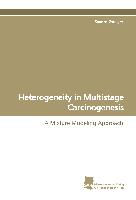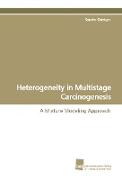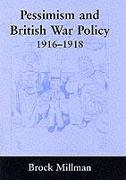- Start
- Heterogeneity in Multistage Carcinogenesis
Heterogeneity in Multistage Carcinogenesis
Angebote / Angebote:
Carcinogenesis is commonly described as a multistage process. In a first step, a stem cell is transformed via a series of mutations into an intermediate cell having a growth advantage. Under favorable conditions, such a cell will give rise to a clone of initiated cells. At some point, further alterations may transform a cell out of this clone into a malignant tumor cell. A mechanistic model of this process is given by the widely used two-stage clonal expansion model. In this text, Sandro Gsteiger studies how to introduce population heterogeneity into this model. Mixture modeling, which allows to describe frailty in a biologically meaningful way, is used. First, the focus is on the theoretical properties of the extended model. In particular identifiability is discussed extensively. In a second part, the model is fitted to human cancer incidence data. A situation in which maximum likelihood estimation fails is analyzed and alternatives for statistical inference are described. The applications show that good fits are achieved only when the mixing distribution separates the population clearly into a large virtually immune group and into a small high risk group.
Folgt in ca. 10 Arbeitstagen





